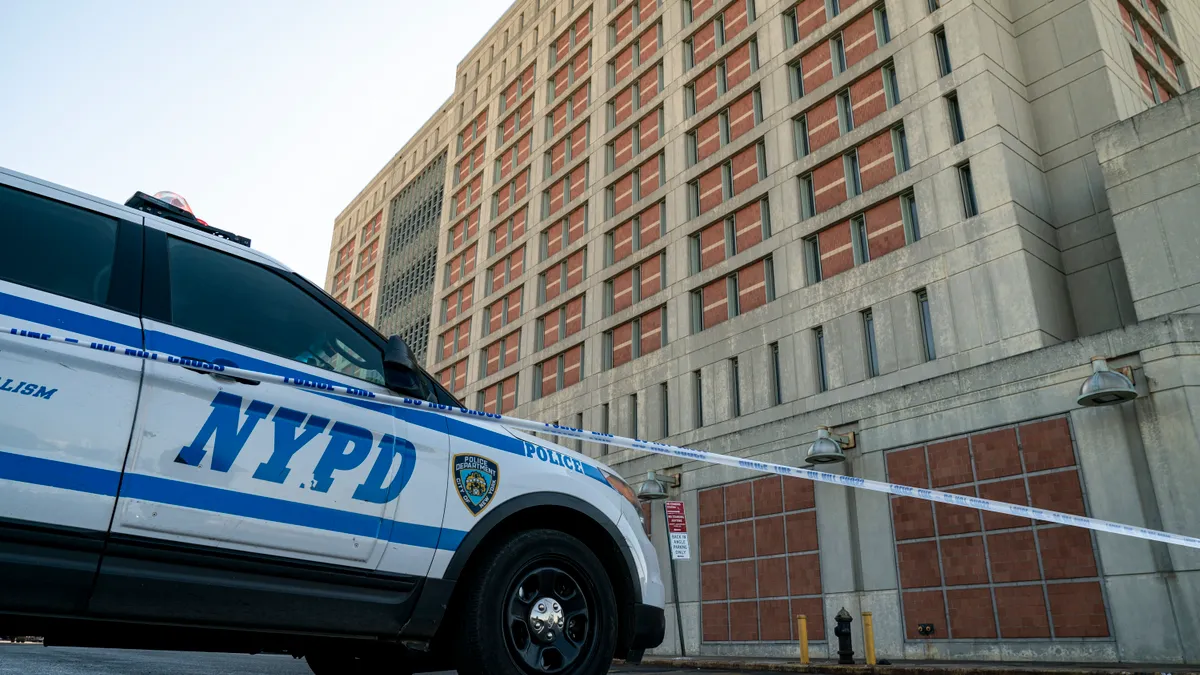Dive Brief:
- New York City is creating what it calls the nation’s first gun crimes unit at a public DNA crime laboratory. Employees will focus exclusively on testing and analyzing evidence from gun crimes in the city.
- The recently announced $2.5 million DNA Gun Crimes Unit is expected to speed evidence test turnaround times to expedite gun crimes through the criminal justice system. Currently, testing turnaround is 60 days, and that should drop to 30 days when the new unit becomes fully operational, officials said.
- The city will hire and train 24 forensic scientists, or criminalists, to work in the gun crimes unit, nearly half of which have already been selected, according to officials. The new hires are expected to be in place and ready for training by this fall, and the unit should be fully functional within a year.
Dive Insight:
Like many U.S. cities of all sizes and even rural areas, New York City experienced an uptick in violent crime, especially gun crime, during the pandemic. Although crime in general still is up in New York City, data from the police department published in June show a drop in shooting incidents this spring compared with the same time last year. Still, a rash of shootings in New York City in recent weeks has intensified public outcry for action to curb gun violence.
Gun arrests are at a 28-year high in New York City. Mayor Eric Adams said last week that while he believes his crime reduction strategy is working, both he and residents would like to see faster results. The DNA Gun Crimes Unit is one strategy to speed results.
Adams noted that the city constantly modifies its crime reduction strategy. More modifications might follow the U.S. Supreme Court’s recent decision striking down a New York state concealed-carry law. Although the court said the scope of its decision is limited and will not bar states from imposing gun licensing requirements, opponents contend that similar court actions could come down the pike elsewhere and fear public safety will be negatively impacted.
New York Gov. Kathy Hochul called the court’s decision “frightful in its scope” and a hindrance to protecting citizens. This month she signed into law a series of gun safety measures, including a controversial regulation requiring that people wishing to carry concealed handguns submit their social media accounts for review. This comes shortly after several mass shootings – including in Buffalo, New York – carried out by suspects who revealed manifestos or glorified gun violence on social media prior to the attacks.
New York’s Office of the City Medical Examiner says it operates the largest public DNA crime laboratory in North America. Each year it tests 50,000 pieces of evidence from criminal cases. It boasts that the current 60-day test turnaround is faster than 90% of jurisdictions across the country.
The city’s chief medical examiner confirmed in a press conference that the new unit’s process for investigating gun crimes won’t differ from the existing process. Rather, the criminalists hired for this unit will be dedicated solely to gun crime cases instead of the current practice of processing DNA evidence for a variety of cases including property crimes and sexual assaults. Adding resources and creating a dedicated gun crimes team will help to process gun cases more rapidly and set a new standard, according to the chief medical examiner.
“Accelerated results will help the criminal justice system resolve cases as quickly as possible. These proceedings can result in the exoneration of someone who's innocent or the conviction of someone who's guilty,” Jason Graham, New York City chief medical examiner, said during the press conference. “Faster turnaround times also speed answers for victims, families and our communities, which are affected by the gun violence epidemic.”
The city will use much of the funding to hire and train the 24 new criminalists. Some money also will go toward upgrading lab software and purchasing new equipment. The mayor referred to the new team as the “modern-day CSI.”
“This is how we strengthen public safety and how we fight gun violence,” Adams said at the press conference. “We're saying to those committed to gun crimes, science is coming for you and we are going to use this science to get you off our street.”
DNA from gun crimes is not more difficult to process than for other crimes, Graham said. However, all cases involving DNA evidence bear challenges such as DNA degradation from weather, heat or other contaminants like blood. The new unit supports the medical examiner’s role of blending public health and public safety, he said.













